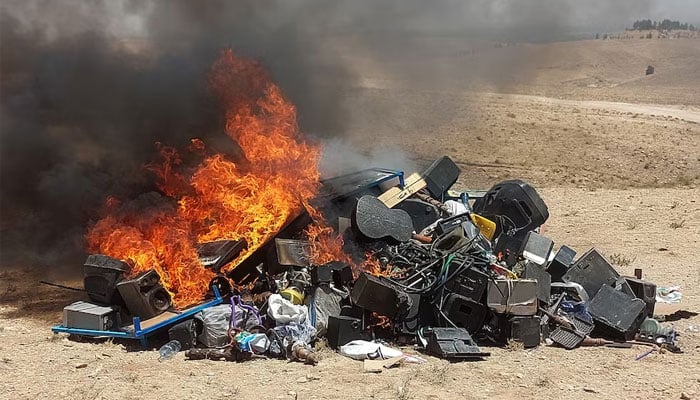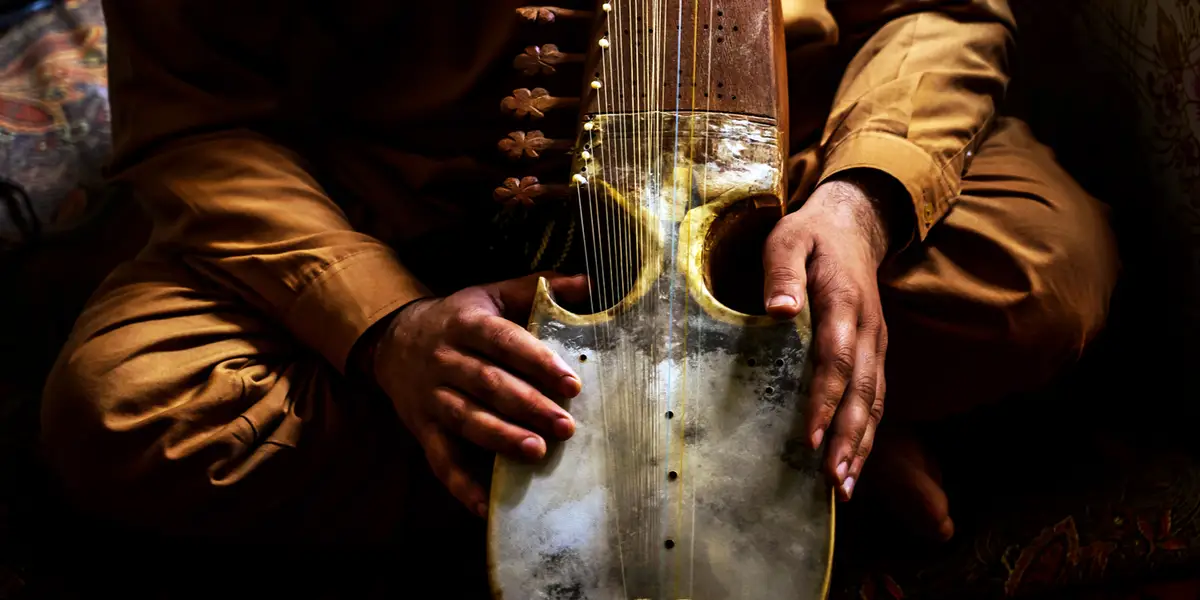In a disheartening act of cultural suppression, the Taliban recently burned musical instruments worth thousands of dollars in the western Herat province of Afghanistan. The extremist group defended its actions, claiming that music corrupts morality.
The incident forms part of the Taliban’s stringent limitations imposed since taking over the country in 2021, including a prohibition on public musical performances.

The Afghanistan National Institute of Music’s founder, Ahmad Sarmast, likened the Taliban’s actions to “cultural genocide and musical vandalism.” Dr. Sarmast, now residing in Portugal, expressed deep concern over the lack of artistic freedom for the Afghan people, citing the Taliban’s rule as a catalyst for widespread cultural destruction across the nation.
Social media images depict a guitar, a harmonium, a tabla (a type of drum), amplifiers, and speakers set ablaze after being confiscated from wedding venues in the city.
An official from the Taliban’s Vice and Virtue Ministry attempted to justify the burning of musical instruments by stating that playing music could lead the youth astray.
This incident is not an isolated occurrence, as a similar bonfire of instruments took place on July 19, with the specific location undisclosed in the government’s Twitter post.
During their previous rule in Afghanistan from the mid-90s until 2001, the Taliban imposed a complete ban on all forms of music in social gatherings, television, and radio. However, over the past two decades, the country had witnessed a vibrant music scene. Tragically, with the Taliban’s resurgence in August 2021, many musicians chose to flee the country to avoid potential persecution.
Reports have surfaced of singers and musicians facing beatings and discrimination for continuing to practice their art within Afghanistan.
The Taliban’s strict interpretation of religious law has resulted in various severe restrictions in recent years. Women have borne the brunt of these limitations, including stringent dress codes and restricted movement beyond 72 kilometers without a male relative. Teenage girls and women have been barred from attending schools, universities, gyms, and parks. In a recent move, the Taliban ordered the shutdown of all hair and beauty salons across the country, branding them as un-Islamic.
The burning of musical instruments serves as a poignant reminder of the challenges faced by artists and musicians under the Taliban’s rule in Afghanistan. The extremist group’s actions not only stifle cultural expression but also raise concerns about the preservation of artistic freedom in a nation known for its rich cultural heritage. As the Taliban’s grip on power persists, it poses significant obstacles to upholding cultural diversity and the cherished value of freedom of expression in Afghanistan.




